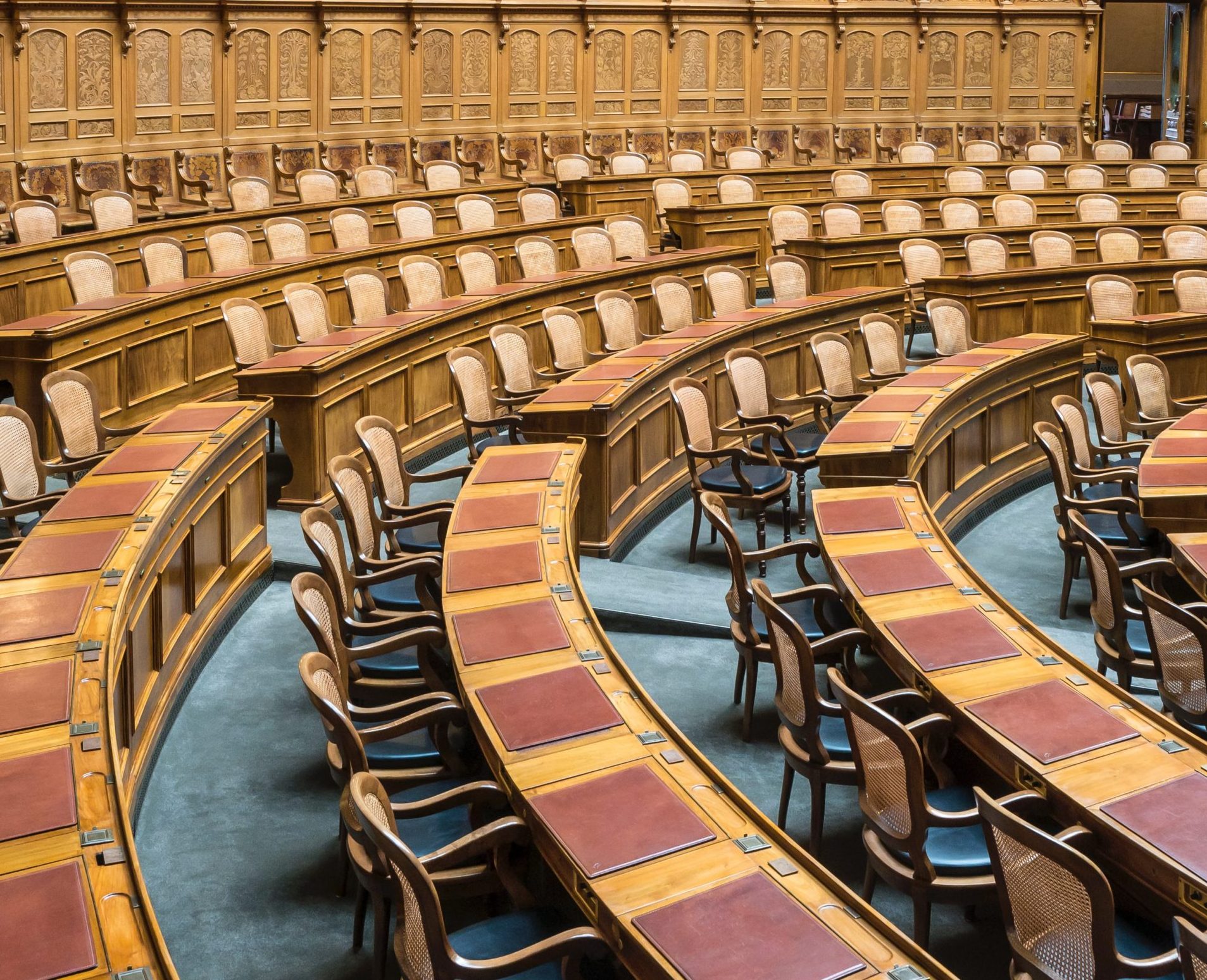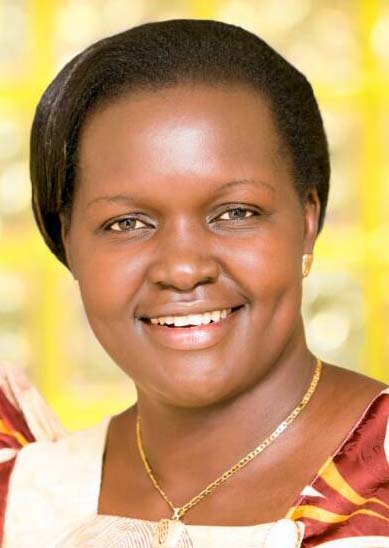Groundbreaking Workshop on AI and Technology-Facilitated Gender-Based Violence at AWiM24
Trending
Tuesday May 27, 2025
Trending

When the 11th Ugandan Parliament is sworn in next month, it will have more women than the previous one, maintaining the country’s above-average rank in gender equity in politics. While currently ranked at number 37 out of 193 countries in the Inter-Parliamentary Union’s list, this above-average performance belies the stagnation that has choked the move towards real equality in politics.
For one, the 11th parliament only has more women because of an increase in the number of districts, and in turn, the number of Woman District Representatives elected to parliament to represent those new districts. Secondly, for 25 years now, the percentage of women in Parliament has been stuck at just shy of 35 per cent. The dial towards equitable representation has barely moved an inch in two-and-a-half decades.
![]()
This, said Catherine Lamwaka of the parliamentary caucus for elected women, is because women still face the same challenges in politics as those that went before them. Notably, consistent messaging promotes the idea that women have their own seats — the Woman District Representative seats — and a large section of the population, therefore, believes that women have no business competing for direct seats at the constituency level. In Uganda, parliament has 528 members, of which 498 are directly elected by voters, while 30 are nominated as representatives of special interest groups. Among the 498 members who are directly elected, 112 seats are reserved for women, elected as Woman District Representatives; moreover, six out of the 30 seats reserved for special interest groups (youth, persons with disabilities, members of the Uganda People’s Defence Forces, and trade unions) are reserved for women.
“Women who vie for direct constituency seats are targeted for abuse, and this has led many to resolve that the violence is not worth enduring,” Ms Lamwaka, who serves as the vice-chairperson of the Uganda Women Parliamentary Association told AWiM News. She added that women are called “prostitute” and other names, told to focus on marital concerns, and generally put down and berated.

A study on the digital rights of women during the 2021 elections found that female candidates suffered insults and harassment on social media. Sylvia Nankya, who co-authored the study by the ICT Policy Centre for Eastern and Southern Africa (CIPESA), said that in cases where there were no outright insults, female candidates received direct messages warning them against discussing certain matters because they are “mothers”. For instance, Nancy Kalembe, the only female presidential candidate in the 2021 election, would post a campaign message on her social media platforms, and receive a deluge of spam messages from supporters of the National Unity Platform, on which the main opposition candidate Robert “Bobi Wine” Kyagulanyi ran. However, Ms Nankya noted, candidates such as the incumbent President Yoweri Museveni and Joseph Kabuleeta, did not endure similar treatment.
Such are the reasons why few women occupy direct constituency seats. In 2016, 20 women out of 295 legislators were elected on the direct constituency seats, while data released by the Electoral Commission of Uganda shows that women will occupy only 21 of 353 direct constituency seats in the 11th parliament. When you add women district representatives and other special interest groups, there will be 179 women in the 11th parliament. In the 10th parliament, women accounted for 34.9 per cent of the total number of legislators, while in the 11th parliament, the percentage is 33 per cent. According to UWOPA, there had been a general decline in the number of women campaigning for direct constituency seats.
The problem of representation, however, appears to be greater than stagnation in numbers. David Pulkol, who is Executive Director of the African Leadership Institute (AFLI), said that even those women who make it to parliament do not participate fully. This affects the addressing of issues that affect women. AFLI has been running a scorecard to measure the performance of legislators in Uganda for years, and the most recent study found that women were not participating sufficiently in committees, yet 70 per cent of work in parliament is done in committees.
AFLI found that women were more inclined to attend plenary sittings that largely take place in the afternoons, while men paid more attention to committee work in the mornings. This could be one of the reasons behind the slow pace in passing what UWOPA calls the gender bills, although Mr Pulkol said that their study did not measure that aspect. Currently, there are four gender bills at the committee stage. They include the Marriage and Divorce Bill of 2009, the Succession Amendment Bill of 2018, the Sexual Offences Bill of 2019 and the Employment Amendment Bill of 2019. While UWOPA is hopeful that some of the bills will pass before the term of the sitting parliament ends in less than a month, the reality is that the process might be hard to manoeuvre, even with major backing from Speaker Rebecca Kadaga.
Moreover, even if the bills pass the committee stage and make it onto the order paper within the next month, UWOPA would need to pull off a difficult public relations campaign to convince the requisite number of men and women to vote in favour of the laws. Previously, negative perceptions have beleaguered some of the bills that address issues faced by women. And given that the quota of women in parliament would not be enough to pass the bills that address these concerns, even with the Speaker on their side.
Some analysts have been pushing for the achievement of equity through the amendment of the affirmative action law. Some women are pushing for constituencies to be merged so that the structure of Parliament is one woman and one man to serve as a district representative. Male politicians, on the other hand, would rather term limits be introduced to fix the number of terms a woman can serve on the affirmative action seat.
Emmanuel Dombo, the director for information and publicity of the ruling party, National Resistance Movement (NRM), told AWiM News that powerful women in parliament should compete for direct constituency seats instead of falling back on affirmative action seats.
“For example, there is no reason for Rebecca Kadaga to be occupying the affirmative action seat,” said Mr Dombo. Ms Kadaga, the current Speaker, has been in Parliament since 1989 as the Woman Representative for Kamuli District.
However, Chipo Bangira, who heads the women’s political participation programme at Akina Mama wa Afrika, told AWiM News that term limits for affirmative action seats would only compound the problem.
“Term limits will not take away the fact that women continue to face systemic barriers that keep them from participating in political processes and decision-making. I’d rather we draw lessons from other countries that have systems of affirmative action, as well as those without,” she said.
We’re not gonna spam. We’ll try at least.

Copyright 2020. African Women In Media
Copyright 2020. African Women In Media
Recent Comments